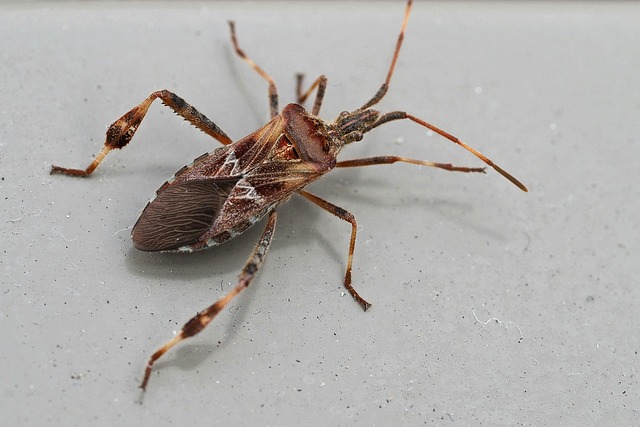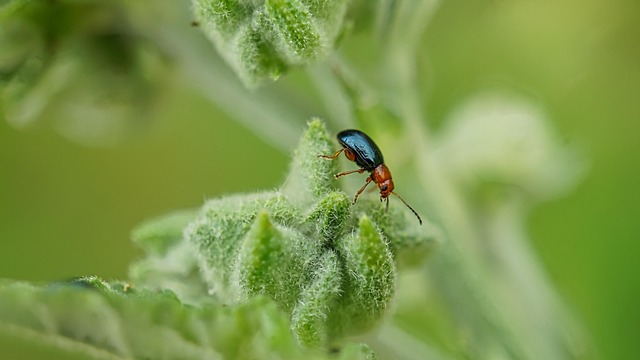Understanding termite behavior crucial for effective pest control in Sheridan areas focusing on residential mosquito control to prevent West Nile virus. Homeowners protect properties by identifying entry points, conducting regular inspections, and emulating natural processes for non-chemical treatments. Long-term strategies involve eliminating standing water, landscaping, and adopting integrated pest management (IPM) practices to reduce mosquito presence and mitigate disease transmission risks.
In the face of persistent termite infestations, homeowners in Sheridan require effective and long-lasting solutions. This article delves into comprehensive termite treatment plans, offering insights into understanding termite behavior and leveraging both chemical and non-chemical methods. We explore strategies for residential mosquito control, crucial not just for property preservation but also for public health, particularly preventing the West Nile virus. By combining these approaches, Sheridan residents can safeguard their homes and communities from these relentless pests.
- Understanding Termite Behavior and Entry Points
- Chemical vs. Non-Chemical Treatments for Termites
- Long-Term Prevention Strategies for Residential Mosquito Control
Understanding Termite Behavior and Entry Points

Understanding termite behavior is key to effective pest control. Termites are social insects that live in colonies, with each member having a specific role. They are attracted to moisture and wood, making residential areas particularly vulnerable. By identifying their preferred entry points—cracks in foundations, doors, windows, or any gaps around pipes and wires—homeowners can take proactive measures.
Regular inspections are crucial for early detection of termite infestations. In Sheridan, where Residential mosquito control to prevent West Nile virus is also a concern, homeowners should be vigilant. Termites often go unnoticed until significant damage occurs. Preventive treatments, such as sealing entry points and maintaining proper drainage, can disrupt their life cycle and protect structures from these insidious pests.
Chemical vs. Non-Chemical Treatments for Termites

When it comes to tackling termite infestations, homeowners often find themselves torn between chemical and non-chemical treatment options. Chemical treatments have been the traditional go-to, involving the application of pesticides to eliminate termites. These methods can be effective but raise concerns about potential environmental impact and health risks. On the other hand, non-chemical or natural treatments focus on using less invasive strategies to control termite populations.
Residential mosquito control is a great example of a non-chemical approach that has gained popularity in areas like Sheridan. By mimicking nature’s methods, these solutions aim to prevent termites from thriving without resorting to harsh chemicals. From biological controls like introducing natural predators to targeted baits that attract and eliminate termites, non-chemical treatments offer an eco-friendly and safer alternative for both homes and the local ecosystem, providing a comprehensive solution in the battle against termites while considering the well-being of residents and the environment.
Long-Term Prevention Strategies for Residential Mosquito Control

In the pursuit of effective residential mosquito control, especially in areas like Sheridan where West Nile Virus poses a risk, long-term prevention strategies are paramount. Beyond quick fixes, homeowners and communities can implement sustainable practices to reduce mosquito breeding grounds. This includes eliminating standing water around homes—a primary habitat for mosquitoes—by regularly emptying containers, cleaning gutters, and fixing leaky pipes. Landscaping plays a crucial role too; maintaining a buffer zone around buildings with grass and shrubs can disrupt mosquito flight paths and access to potential breeding sites.
Additionally, adopting integrated pest management (IPM) techniques offers a holistic approach. This involves monitoring mosquito populations, using biological controls like natural predators, and employing targeted applications of approved repellents or insecticides when necessary. By integrating these strategies, Sheridan residents can significantly reduce the presence of mosquitoes not only for their comfort but also to minimize the transmission risk of diseases like West Nile Virus.
Effective termite control requires a multi-faceted approach, understanding their behavior and employing both chemical and non-chemical treatments. To enhance residential mosquito control and prevent diseases like West Nile Virus in Sheridan, implementing long-term prevention strategies is key. By addressing entry points and adopting eco-friendly methods, homeowners can secure their properties against these pests while contributing to a healthier environment. Regular inspections and proactive measures are vital for maintaining a comfortable and pest-free living space.
